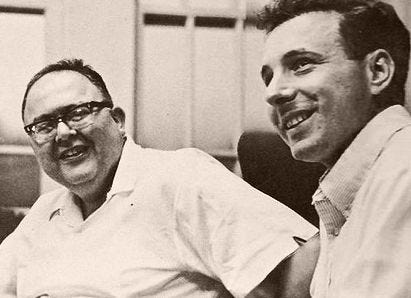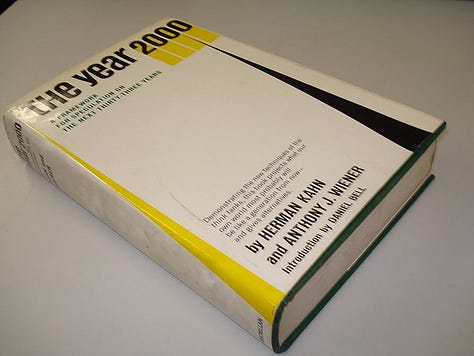Disco Demolition and what comes after prosecco
The next big thing is rarely the next big thing. Two academics and a DJ who hated Disco show us why.
What are the wines we'll be drinking in five years? How will we discover them? What will be fashionable?
Will they be "a bit like today's popular wines... but predictably different"? Or will they be "the opposite of the wines everyone likes today"?
Two scientists and a riot on a baseball field give us a clue.
The Year 2000
On Friday February 2nd 1968, at Duke University1, the House Republican Leader (and future President) Rep. Gerald R. Ford addressed the faculty:
Many people look to the future with keen anticipation; some with dread…Pundits peer into their crystal balls, and newspaper readers avidly devour their forecasts. Alexander Pope summed up this fascination with the future and dreams of a better world in perhaps his most famous rhyming couplet:
"Hope springs eternal in the human breast:
Man never is, but always to be, blest."
I am no exception, of course, And so it was with great interest that I recently scanned a book entitled, "The Year 2000: A Framework For Speculation On The Next Thirty-Three Years," by Herman Kahn and Anthony J. Wiener. This book hardly feeds the hope that springs eternal. Rather than promising utopia, the two authors explore a number of dire possibilities including nuclear war, the triumph of Communism, the reappearance of Fascism and an international depression.
“The Year 2000: A Framework For Speculation On The Next Thirty-Three Years," is indeed a rather glum book. Although its glummest lesson is how even the cleverest people struggle to predict what will happen.
From other side of the year 2000 we should be grateful that its gloomier predictions of nuclear war and the triumph of Communism didn’t come true. But those in the audience at Duke who went on to read the book (in more detail than Gerald Ford, who just “scanned” it) the prognosis must have been terrifying.
Herman Kahn was a renowned futurist and strategist. He was also one of the role models for Dr Strange in Stanley Kubrick’s film. His 1962 book “Thinking About the Unthinkable” was about the dangers of leaving politicians in charge of nuclear weapons. (I have some sympathy with this argument). It had captivated the defence community. Anthony J. Wiener was a high-profile and notable policy analyst. Together they explored technological advances, social change, and potential geopolitical developments. And they used an innovative. methodological approach. A systematic and rigorous exploration of possible futures, rather than informed guessing. And t future they described looked dystopian.



Keep reading with a 7-day free trial
Subscribe to Joe Fattorini's Substack to keep reading this post and get 7 days of free access to the full post archives.





